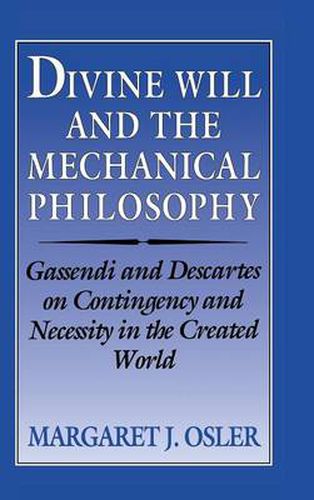Readings Newsletter
Become a Readings Member to make your shopping experience even easier.
Sign in or sign up for free!
You’re not far away from qualifying for FREE standard shipping within Australia
You’ve qualified for FREE standard shipping within Australia
The cart is loading…






This book is about the influence of varying theological conceptions of contingency and necessity on two versions of the mechanical philosophy in the seventeenth century. Pierre Gassendi (1592-1655) and Rene Descartes (1596-1650) both believed that all natural phenomena could be explained in terms of matter and motion alone. They disagreed about the details of their mechanical accounts of the world, in particular about their theories of matter and their approaches to scientific method. This book traces their differences back to theological presuppositions they inherited from the Middle Ages. Theological ideas were transformed into philosophical and scientific ideas which led to the emergence of different styles of science in the second half of the seventeenth century.
$9.00 standard shipping within Australia
FREE standard shipping within Australia for orders over $100.00
Express & International shipping calculated at checkout
This book is about the influence of varying theological conceptions of contingency and necessity on two versions of the mechanical philosophy in the seventeenth century. Pierre Gassendi (1592-1655) and Rene Descartes (1596-1650) both believed that all natural phenomena could be explained in terms of matter and motion alone. They disagreed about the details of their mechanical accounts of the world, in particular about their theories of matter and their approaches to scientific method. This book traces their differences back to theological presuppositions they inherited from the Middle Ages. Theological ideas were transformed into philosophical and scientific ideas which led to the emergence of different styles of science in the second half of the seventeenth century.